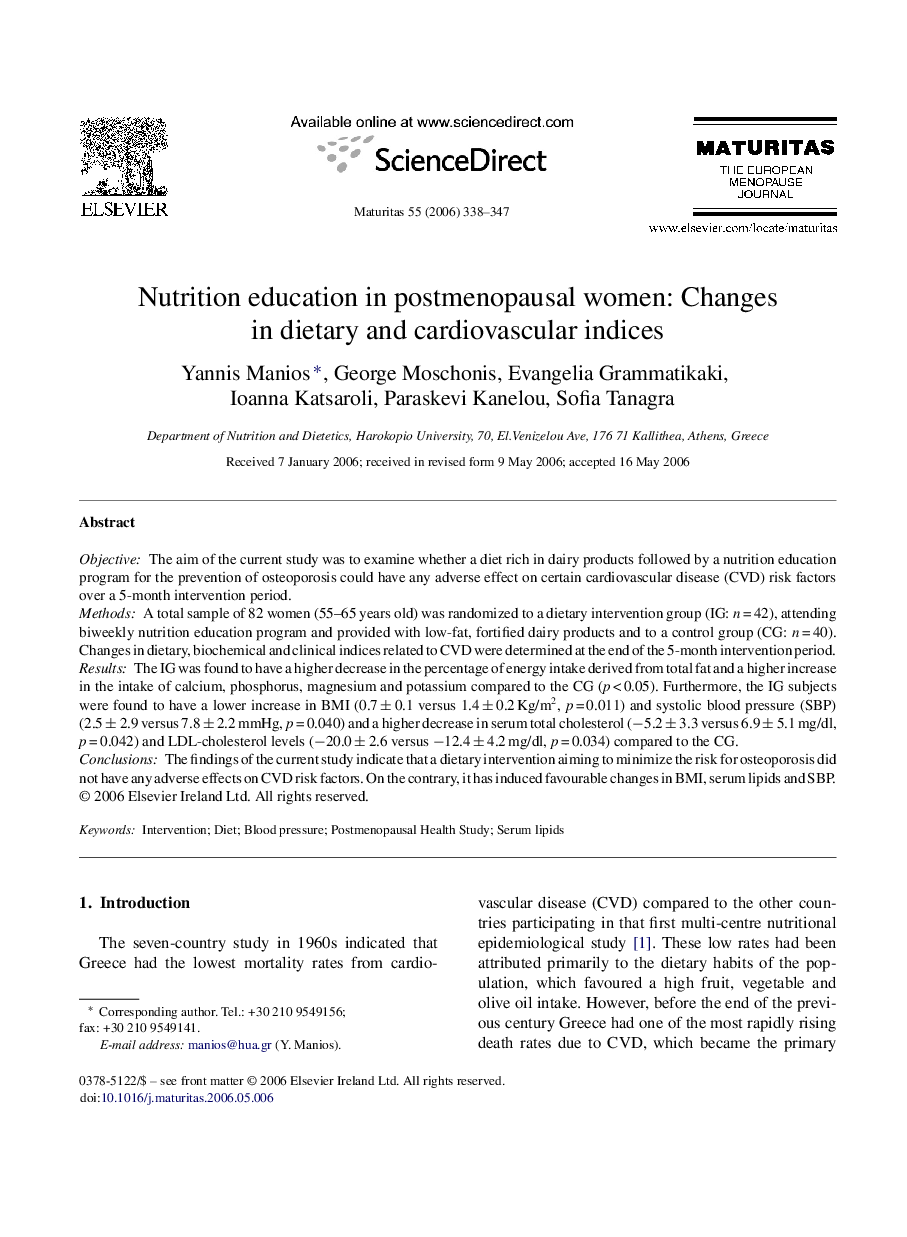| Article ID | Journal | Published Year | Pages | File Type |
|---|---|---|---|---|
| 1918927 | Maturitas | 2006 | 10 Pages |
ObjectiveThe aim of the current study was to examine whether a diet rich in dairy products followed by a nutrition education program for the prevention of osteoporosis could have any adverse effect on certain cardiovascular disease (CVD) risk factors over a 5-month intervention period.MethodsA total sample of 82 women (55–65 years old) was randomized to a dietary intervention group (IG: n = 42), attending biweekly nutrition education program and provided with low-fat, fortified dairy products and to a control group (CG: n = 40). Changes in dietary, biochemical and clinical indices related to CVD were determined at the end of the 5-month intervention period.ResultsThe IG was found to have a higher decrease in the percentage of energy intake derived from total fat and a higher increase in the intake of calcium, phosphorus, magnesium and potassium compared to the CG (p < 0.05). Furthermore, the IG subjects were found to have a lower increase in BMI (0.7 ± 0.1 versus 1.4 ± 0.2 Kg/m2, p = 0.011) and systolic blood pressure (SBP) (2.5 ± 2.9 versus 7.8 ± 2.2 mmHg, p = 0.040) and a higher decrease in serum total cholesterol (−5.2 ± 3.3 versus 6.9 ± 5.1 mg/dl, p = 0.042) and LDL-cholesterol levels (−20.0 ± 2.6 versus −12.4 ± 4.2 mg/dl, p = 0.034) compared to the CG.ConclusionsThe findings of the current study indicate that a dietary intervention aiming to minimize the risk for osteoporosis did not have any adverse effects on CVD risk factors. On the contrary, it has induced favourable changes in BMI, serum lipids and SBP.
